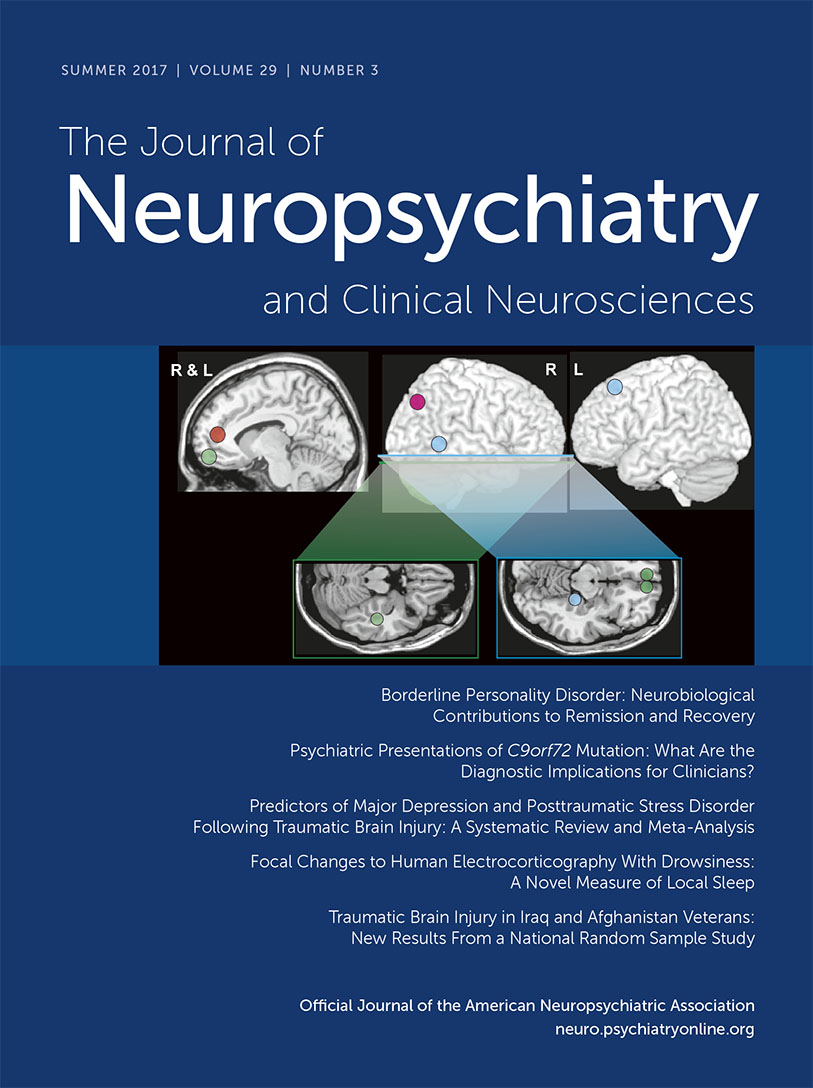Traumatic Brain Injury in Iraq and Afghanistan Veterans: New Results From a National Random Sample Study
Abstract
This study randomly sampled post-9/11 military veterans and reports on causes, predictors, and frequency of traumatic brain injury (TBI) (N=1,388). A total of 17.3% met criteria for TBI during military service, with about one-half reporting multiple head injuries, which were related to higher rates of posttraumatic stress disorder, depression, back pain, and suicidal ideation. The most common mechanisms of TBI included blasts (33.1%), objects hitting head (31.7%), and fall (13.5%). TBI was associated with enlisted rank, male gender, high combat exposure, and sustaining TBI prior to military service. Clinical and research efforts in veterans should consider TBI mechanism, effects of cumulative TBI, and screening for premilitary TBI.



